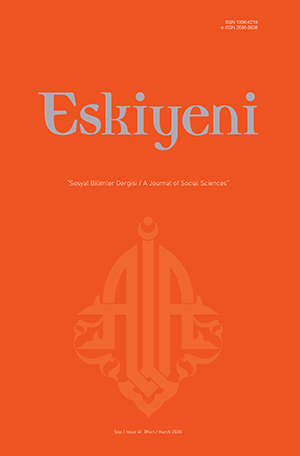Dil Oyunları Teorisi Perspektifinde Kur’ân-ı Kerîm’e Yaklaşma Denemesi
The Approach to the Qur’ān in the Perspective of Language Games Theory
Author(s): Ergin ÖgcemSubject(s): Islam studies, Philosophy of Religion, Philosophy of Language
Published by: Anadolu İlahiyat Akademisi
Keywords: Philosophy of Religion; Qur’ān; Language Games; Understanding; Context;
Summary/Abstract: In the West, especially after the Enlightenment, while an understanding prioritizing reason and human began to strengthen, the religious references centering God lost power to a large extent. Therefore, language was started to deal with in terms of its suitability for mental and scientific references rather than what is mentions. With the focus of anxiety on this point, discourse forms such as religion, metaphysics and morality have entered the process of losing their weight and effectiveness on society.At the beginning of the twentieth century, the most powerful and shocking criticism for the language which was used in the field of morality, metaphysics and religion was directed by Logi-cal Positivists. The majority of the members of this group, known as the Vienna Circle, were scientists. Their main goal was to develop a clear and precise discourse on language as in science. Thus, they will test their accuracy by applying the method of logic and mathematics to expres-sions of religion, morality and metaphysics; they claimed that they would free the language of these areas from doubt and uncertainty by excluding the statements they could not verify. The source of inspiration of language for Logical Positivist Circle was actually the first period of Wittgenstein's philosophy. Since in this period, Wittgenstein stated that there was an absolute harmony between language and reality, that he placed the whole world at the borders of logic and saw the world as a limited space with the borders of language. According to him, language was a picture of reality; when we understood a statement, we also knew the fact that it had been brought up. There was no need for an extra explanation at this point. Wittgenstein realized that this extremely restrictive approach caused a vicious circle in itself and abandoned this thought. In this phase constituting the second period of his philosophy, he no longer thought that there was a harmony between language and reality. According to him, it was wrong to argue that the language has a duty for only one thing and to portray phenomenon only. What was to be defend-ed was that, language is related to the use of the meaning of the language, what is meant by the language are sets of language games shaped according to the lifestyles and these sets of language games are issues based on the feature of compromise.This study argues that the expressions belonging to religion in general and the Qurʾān in particu-lar can partially be handled within the framework of language games. Due to the fact that, even though religions claimed to be universal, they eventually came to a nation with a certain lan-guage and culture, in a certain time and geography. Therefore, they definitely benefited from the language, culture and understanding of the nation they came in. Moreover, it would be unthink-able that the expressions coming to a nation with a certain cultural background used a language, references and examples in which they could be completely foreign. Therefore, religions definite-ly benefited from the opportunities of the language of the society they came in. Moreover, it would be unthinkable that the expressions that came to a nation with a certain cultural back-ground used a language, references and examples in which they could be completely foreign. Therefore, religions have benefited from the potentials of the language of the society in circula-tion. This is also valid for the Qur’ān. For the reason that the Qur’ān also used the opportunities of the language used by that society, conveyed its message through examples that the people of that period could understand, and made incentives and threats according to the expectations and reservations of the people of the period. As in the Qur’ān , although religions applied to the references of the period they came in and tried to convey their message by making the understanding of that region the object of their language, it is not correct to say that a whole language of religion was a language belonging to that period. Because the main concern of religions while conveying their message is to be understandable. Almost every language had an aim to address as many different times and communities as possi-ble. Therefore, religions used references that would be common values of humanity, including the principles that everyone could understand, adopt and apply. Claiming otherwise would cause religion to be understood as a form of expression that came to solve the problems of the certain society and then lost its function. But no religion would accept such an approach. Besides, to-day’s religions are proof of this. Therefore, Christianity was not only the religion of those who spoke Aramaic. Likewise, Islam is not the religion of a nation that only speaks Arabic. Today, Islam has gone far beyond its borders and it has been an universal religion that determined the beliefs of the member nations of many different language groups. Although it has an exceptional situation, it is also possible to say this for Judaism. From this aspect, Wittgenstein's approach to language games which is that each language is a closed language that is specific to a community, com-pletely closed, and not open to the experience of others is inconsistent. Languages have such an uniqness in one aspect, but this is not an extrovert uniqness that is not understood by anyone else. If it was true, it would not be possible to talk about the connection between different gener-ations and a generation's own past.
Journal: Eskiyeni
- Issue Year: 2020
- Issue No: 40
- Page Range: 107-128
- Page Count: 22
- Language: Turkish

